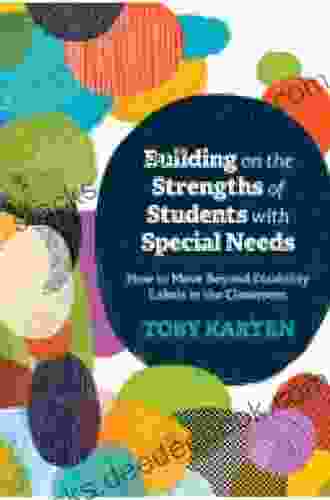Two Hundred Sanskrit Verbs You Should Know: A Comprehensive Guide to Expand Your Vocabulary

Sanskrit, the ancient language of India, holds a revered position in the world of linguistics and literature, boasting a rich history and cultural significance. Its intricate grammar and vast vocabulary have captivated scholars and enthusiasts alike for centuries. Among its many grammatical components, verbs occupy a central role, providing the essential building blocks for constructing meaningful sentences and expressing a wide range of actions, states, and conditions.
5 out of 5
| Language | : | English |
| File size | : | 1322 KB |
| Text-to-Speech | : | Enabled |
| Enhanced typesetting | : | Enabled |
| Print length | : | 6 pages |
| Lending | : | Enabled |
| Screen Reader | : | Supported |
To effectively navigate the complexities of Sanskrit and fully appreciate its literary treasures, it is imperative to master a comprehensive repertoire of verbs. This guide presents a carefully curated list of 200 essential Sanskrit verbs, providing a solid foundation for beginners and an invaluable resource for intermediate learners seeking to enhance their vocabulary and fluency.
The Significance of Sanskrit Verbs
Verbs lie at the heart of any language, and Sanskrit is no exception. They serve as the dynamic elements that propel sentences, conveying actions, occurrences, emotions, and states of being. By mastering Sanskrit verbs, you not only expand your vocabulary but also gain a deeper understanding of the language's structure and expressive capabilities.
Sanskrit verbs are renowned for their versatility and adaptability. They can be conjugated to indicate various tenses, moods, voices, and aspects, allowing for precise and nuanced expression. This grammatical flexibility enables Sanskrit to capture a vast array of linguistic subtleties, enhancing its literary and philosophical power.
Exploring the Two Hundred Essential Verbs
The following list presents 200 essential Sanskrit verbs, carefully selected to cover a wide range of commonly used actions, states, and conditions. Each verb is presented in its infinitive form, followed by its meaning and an example sentence to illustrate its usage.
- अस् (as) - to be, exist - अहमस्मि (aham asmi) - I am.
- कृ (kr) - to do, make - करोति (karoti) - He does or makes.
- गम् (gam) - to go - गच्छति (gacchati) - He goes.
- स्था (sthā) - to stand - तिष्ठति (tiṣṭhati) - He stands.
- दृश् (dṛś) - to see - पश्यति (paśyati) - He sees.
- श्रु (śru) - to hear - शृणोति (śṛṇoti) - He hears.
- वद् (vad) - to speak - ब्रवीति (bravīti) - He speaks.
- भू (bhū) - to become - भवति (bhavati) - He becomes.
- राज् (rā) - to rule, reign - राजति (rājati) - He rules or reigns.
- जन् (jan) - to be born - जायते (jāyate) - He is born.
These verbs form the cornerstone of Sanskrit vocabulary, allowing you to express a wide range of ideas and engage with Sanskrit texts with greater comprehension and confidence.
Conjugating Sanskrit Verbs
To fully utilize the expressive power of Sanskrit verbs, it is essential to master their conjugation. Sanskrit verbs are conjugated based on a combination of tense, mood, voice, and aspect. Each combination requires a specific set of endings that are added to the verb stem.
The present tense is the most commonly used tense in Sanskrit. To conjugate a verb in the present tense, simply add the appropriate ending to the verb stem. For example, the verb अस् (as) - to be, exist, becomes अस्मि (asmi) - I am in the present tense.
Sanskrit also has a rich system of moods, including the indicative, imperative, and subjunctive. The indicative mood is used to state facts or actions, the imperative mood is used to give commands or requests, and the subjunctive mood is used to express possibilities or hypothetical situations.
Voices are another important aspect of Sanskrit verbs. The active voice is used when the subject of a verb is performing the action, while the passive voice is used when the subject is receiving the action. To form the passive voice, the verb stem is combined with the passive suffix -्य (ya).
Mastering the two hundred essential Sanskrit verbs presented in this guide is a significant step towards fluency in the ancient language of India. By expanding your vocabulary and understanding the intricacies of Sanskrit verb conjugation, you unlock a gateway to a vast and captivating world of literature, philosophy, and cultural heritage.
Embark on this linguistic journey with enthusiasm and dedication, and you will be rewarded with a deeper appreciation for the beauty and sophistication of Sanskrit, one of the world's oldest and most enduring languages.
5 out of 5
| Language | : | English |
| File size | : | 1322 KB |
| Text-to-Speech | : | Enabled |
| Enhanced typesetting | : | Enabled |
| Print length | : | 6 pages |
| Lending | : | Enabled |
| Screen Reader | : | Supported |
Do you want to contribute by writing guest posts on this blog?
Please contact us and send us a resume of previous articles that you have written.
 Novel
Novel Chapter
Chapter Story
Story Genre
Genre Reader
Reader Library
Library Newspaper
Newspaper Sentence
Sentence Glossary
Glossary Bibliography
Bibliography Preface
Preface Synopsis
Synopsis Classics
Classics Library card
Library card Narrative
Narrative Biography
Biography Autobiography
Autobiography Reference
Reference Thesaurus
Thesaurus Narrator
Narrator Character
Character Resolution
Resolution Librarian
Librarian Card Catalog
Card Catalog Borrowing
Borrowing Study
Study Research
Research Scholarly
Scholarly Lending
Lending Reserve
Reserve Academic
Academic Journals
Journals Rare Books
Rare Books Interlibrary
Interlibrary Literacy
Literacy Study Group
Study Group Thesis
Thesis Dissertation
Dissertation Storytelling
Storytelling Book Club
Book Club Erich Segal
Erich Segal Gregory Fite
Gregory Fite Toshiro Ogawa
Toshiro Ogawa Mario Sergio Cortella
Mario Sergio Cortella Mark Lines
Mark Lines Elaine Castillo
Elaine Castillo Laura Carno
Laura Carno Brad Stephenson
Brad Stephenson Connie Kerbs
Connie Kerbs Ian T Jackson
Ian T Jackson Adriana Cruz Manjarrez
Adriana Cruz Manjarrez Frederick Charles Barghoorn
Frederick Charles Barghoorn Ulbe Bosma
Ulbe Bosma Deborah Paredez
Deborah Paredez Jimmy L Bryan Jr
Jimmy L Bryan Jr Prasanth Kallay
Prasanth Kallay Nick Russell
Nick Russell Keely Chace
Keely Chace Adriana Kritter
Adriana Kritter Shelagh Hubbard
Shelagh Hubbard
Light bulbAdvertise smarter! Our strategic ad space ensures maximum exposure. Reserve your spot today!

 Arthur C. ClarkeMoving Beyond Disability Labels in the Classroom: A Comprehensive Guide for...
Arthur C. ClarkeMoving Beyond Disability Labels in the Classroom: A Comprehensive Guide for... Thomas HardyFollow ·14.8k
Thomas HardyFollow ·14.8k Noah BlairFollow ·8.5k
Noah BlairFollow ·8.5k Terry PratchettFollow ·3.4k
Terry PratchettFollow ·3.4k Jon ReedFollow ·3.4k
Jon ReedFollow ·3.4k Abe MitchellFollow ·4.8k
Abe MitchellFollow ·4.8k H.G. WellsFollow ·9k
H.G. WellsFollow ·9k Benjamin StoneFollow ·17k
Benjamin StoneFollow ·17k Desmond FosterFollow ·4.2k
Desmond FosterFollow ·4.2k

 Amir Simmons
Amir SimmonsMore Zeal Than Discretion: A Closer Look at the Risks and...
Enthusiasm is often seen as a positive...

 Wayne Carter
Wayne CarterYear of the Dog: American Poets Continuum 178
Year of the Dog is a...

 David Foster Wallace
David Foster WallaceThe Constitution of the State of New York: A...
The Constitution of the...

 Harvey Bell
Harvey BellSmall Cetaceans of Japan: Exploitation and Biology
Small cetaceans, including...

 Blake Bell
Blake BellEffortless Elegance: A Comprehensive Guide to Captivating...
In the realm of crocheting,...
5 out of 5
| Language | : | English |
| File size | : | 1322 KB |
| Text-to-Speech | : | Enabled |
| Enhanced typesetting | : | Enabled |
| Print length | : | 6 pages |
| Lending | : | Enabled |
| Screen Reader | : | Supported |










